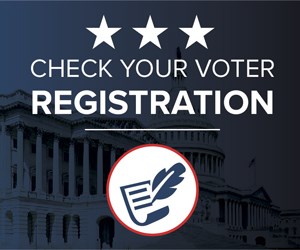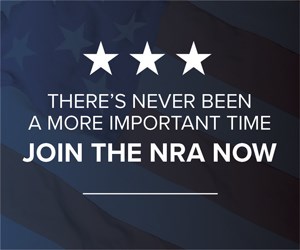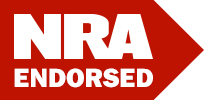STANDING GUARD
WAYNE LAPIERRE, NRA Executive Vice President
A Win For Free Speech
or all of us who have worked so hard to reshape the federal judiciary, proof positive of our success came this summer with a stunning turnaround by the U.S. Supreme Court in support of First Amendment rights.
With two new justices joining the 5-4 majority, the high court struck down as unconstitutional a Federal Election Commission (FEC) pre-election ban on public policy broadcast advertising.
Federal Election Commission v. Wisconsin Right to Life, Inc. (WRTL), penned by new Chief Justice John Roberts, was a clear victory for freedom. NRA filed an amicus, or "friend of the court," brief in support of WRTL's case. The decision will have a major impact on NRA's ability to reach the American people with our public policy messages about firearm rights. In summing up the court's June 2007 ruling, Roberts wrote ". . . we give the benefit of the doubt to speech, not censorship."
The decision will have a major impact on NRA's ability to reach the American people with our public policy messages about firearm rights.
This new decision partially reverses the prior court's abominable December 2003 McConnell v. FEC decision. In that case, NRA and a diverse group of grassroots organizations and unions were instrumental in challenging the pre-election broadcast speech bans contained in the so-called Bipartisan Campaign Reform Act of 2002 (BCRA). That valiant constitutional challenge was led by U.S. Sen. Mitch McConnell, R-Ky.
But with the makeup of the court then, that effort was to no avail.
That loss spurred our determination to see court vacancies filled by jurists who believe in the fundamental meaning of the U.S. Constitution. In that, we succeeded. Chief Justice Roberts filled the seat vacated at the death of William Rehnquist and Justice Samuel Alito replaced retiring Justice Sandra Day O'Connor, who was the key jurist swinging the former majority against the First Amendment in McConnell v. FEC.
The banned Wisconsin Right to Life issue ads at the heart of this new decision merely asked voters to contact their senators and demand an end to filibusters of President Bush's nominees for federal courts.
That filibuster effort--led by gun-ban U.S. Senators Charles Schumer, D-N.Y., and Ted Kennedy, D-Mass.--was intended to kill up-or-down votes on all federal judiciary candidates cut from the same cloth as the new justices who made the difference in this case.
Ironically, the initial FEC ruling against WRTL involved a claim that the target of what it deemed "illegal" ads was U.S. Sen. Russell Feingold--co-author of BCRA--who was running unopposed in a primary election.
In reviewing the WRTL decision, we would have preferred that the court had thrown out as unconstitutional the entire onerous "electioneering communication" section of BCRA. But this ruling goes a long way toward protecting First Amendment rights of grassroots incorporated entities like NRA. In essence, it forbids federal regulators from banning broadcast issue advertising that does not directly exhort voters to either support or oppose candidates for federal office.
Before this decision, federal election law made it a felony to use corporate funds (like your NRA dues) to air a broadcast message that the speech-police at FEC could construe as even remotely referring to a candidate for federal office. That broadcast speech ban applied 30 days before a primary election and 60 days before the general election.
When Congress enacted this oppressive law, the National Rifle Association, as a grassroots corporation, was singled out for censorship. Our highly acclaimed infomercials were labeled "sham ads" and were targeted for broadcast speech bans.
Without this new ruling, NRA's running an educational broadcast alluding to any candidate for federal office anywhere in the nation during the pre-election blackouts could amount to a federal crime. A broadcast expressing NRA's staunch opposition to a gun ban could be seen by FEC enforcers as indirectly urging Americans to vote against a candidate favoring a firearm ban--say, Hillary Clinton.
One remarkable aspect of FEC v. Wisconsin Right to Life, Inc. is that three of the five justices voting for the ruling felt the high court should have gone further and ruled the entire "blackout" broadcast ban unconstitutional.
Writing for Justices Clarence Thomas and Anthony Kennedy, Justice Antonin Scalia said that the effect of BCRA ". . . has been to undermine the traditional and important role of grassroots advocacy in American politics . . . ."
Perhaps suggesting the nature of a future challenge, Scalia said of the U.S. Supreme Court:
". . . It is perhaps our most important constitutional task to assure freedom of political speech. And when a statute creates a regime as unworkable and unconstitutional . . . it is our responsibility to decline enforcement."
Even if it didn't go far enough, this new decision demonstrates the dramatic change in the court and illustrates how urgently important the 2008 elections are. There will be Supreme Court vacancies in the near future.
We must work to assure that a true enemy of the Second Amendment does not take the White House in those coming watershed elections.
At stake is nothing less than who will control future nominations to our entire federal court system from top to bottom.













